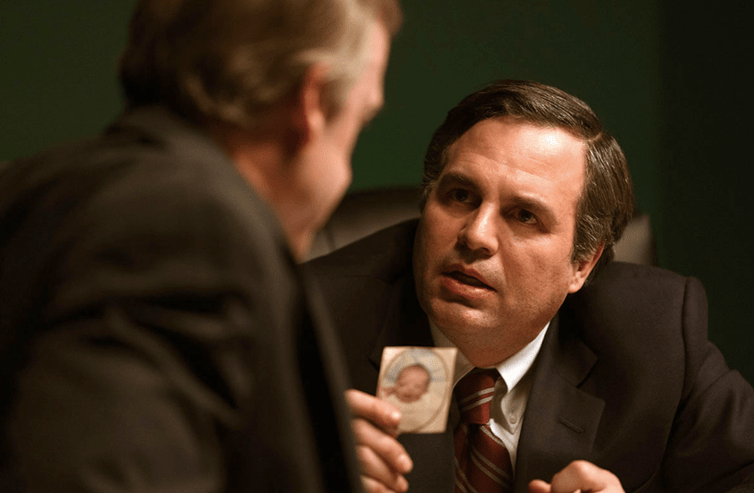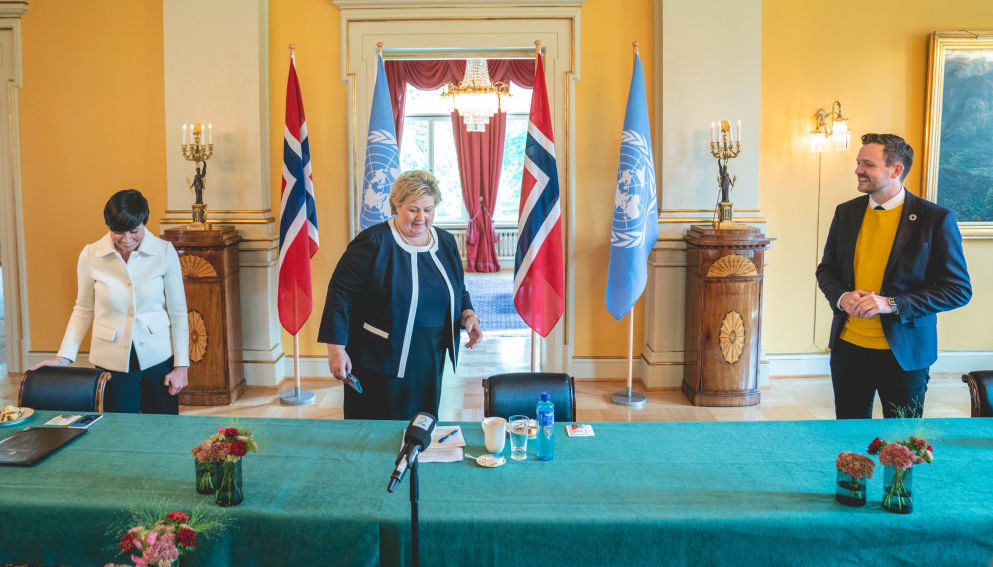
Koen Heimeriks, University of Warwick and Irina Surdu, University of Warwick
Dark Waters, starring Mark Ruffalo and Anne Hathaway, launches in Europe on February 28. It tells of the toxic spills scandal that ultimately led to US chemicals giant DuPont paying US$671 million (£516 million) to settle more than 3,500 lawsuits in 2017.
The company’s plant in Parkersburg, West Virginia had been contaminating the local water supply with perfluorooctanoic acid (PFOA), also known as C-8, which is used to make products such as Teflon. The contamination had a “probable link with six illnesses” among the local population, including kidney and testicular cancer.
DuPont had used C-8 since the 1950s. It had known since the early 1980s that the chemical was toxic to humans, but only agreed in 2006 to phase out its use. Though the company continued to deny wrongdoing, it has become one of the classic cases in which business leaders pursued a strategy that could cause human harm long after the risks had come to their attention.
So why do corporations continue to think they can “do well by doing harm”? To answer this, we need to look at the why and how of corporate wrongdoing.
Understanding harm
DuPont started using C-8 in its Teflon production at the Parkersburg factory in 1951. In 1954, DuPont employees noted that this chemical was likely to be toxic. The company confirmed its toxicity in animals in 1961 and then humans in 1982. Samples from the Ohio River in 1984 showed toxicity levels of the compound eight times higher than normal, which had made its way into the drinking water supply of residents in Ohio and West Virginia. By 1989, many DuPont employees were diagnosed with cancer and leukaemia.
Yet while these events were detailed in internal corporate documents, the media only reported the toxic spills in 2000. In 2001, a class action lawsuit was filed on behalf of Parkersburg residents. On February 13 2017, DuPont agreed to pay US$671 million to settle the case. This was well below Wall Street’s US$1 billion predictions, so DuPont’s share price actually increased by 1% that day and by 4% some two weeks later.

Focus Features
While the stock prices of companies do sometimes drop when some kind of wrongdoing or failure comes to light, these losses are frequently recouped within a short timeframe. One reason why companies might continue to behave irresponsibly after they become aware of corporate harm is that they expect this sort of limited effect on the share price.
Read more:
Dark Waters’ pollution threat isn’t Hollywood hysteria – it could be a ticking timebomb worldwide
Another part of the explanation, as documented in this recent study, is that corporate reputation often doesn’t suffer from wrongdoing. It depends on where the wrongdoing takes place. Company stakeholders such as customers, suppliers and investors care most strongly about what takes place in their own backyard. They tend to respond with more emotion and empathy towards individuals in their home country. Such incidents are more likely to remain in their collective memory and surface when they are reminded of them. This is sometimes referred to as a “distance bias”.
This is perhaps why the DuPont incident was considered to be of sufficient interest to Americans to justify a major movie, even though it unfolded a long time ago. For the same reasons, Hollywood will probably never make a movie about, say, the historic child labour abuse of Nike and Nestlé in the factories of their suppliers in developing countries; or the Jebel al-Zayt oil spill off the coast of Egypt.
Nike and Nestlé both made commitments to eradicate abuses in their supply chains after they came to light, but the cases are reminders that company wrongdoing is not only about day-to-day operations. It often crops up through outsourcing, strategic alliances and mergers and acquisitions. Companies frequently subcontract activities to legally less stringent parts of the world, for instance, and there have been many cases in which they have been able to plead ignorance over abuses within their supply chain. No doubt they benefit from the distance bias here.
Distance bias or not, however, foreign ventures can still sometimes lead to trouble. For example, when Dow acquired Union Carbide (UCC) for US$11 billion in 2001, it was the largest chemicals deal in the world. UCC had paid US$470 million to settle the notorious 1984 gas leak at its pesticides plant in Bhopal, India – but after the acquisition a second Bhopal disaster concerning water contamination came to light, which further damaged UCC’s reputation and overshadowed the deal.
Doing better
So how can companies do well by doing good? As highlighted in this year’s World Economic Forum discussions, companies are more likely to act in everyone’s best interests if they work closely with their stakeholders. DuPont could perhaps have avoided such a long and high-profile scandal if it had shared all the information on C-8 pollution with its employees and the community around the plant much earlier, for instance.
In a similar vein, research by our colleague Maurizio Zollo of Imperial College London suggests that when an acquiring company collaborates with incoming employees, suppliers, customers and local communities, the takeover tends to succeed. Take Unilever, whose corporate strategy is built on the vision that “doing good makes us a better business”. This ambition is reflected both in the type of companies Unilever acquires and how it integrates them.

Keith Homan
When it bought ice-cream maker Ben & Jerry’s in 2001 for US$326 million, it was well aware that Ben & Jerry’s donated 7.5% of its pre-tax profits to charity. Unilever allowed this to continue, while agreeing a two-year policy of no lay-offs and setting up an advisory board to oversee the management of social values and mission integrity during the integration.
The secret to responsible capitalism is to create realistic long-term goals that will foster activities that are mutually beneficial for the company and its stakeholders. This will signal that the company views responsibility not as the unprofitable thing to do, but as the expected thing to do.
And when it comes to outsourcing, takeovers and so forth, companies can choose to do business with other companies which behave responsibly themselves. Instead of waiting until they are compelled to do the socially responsible thing, companies that reach out to customers, suppliers and policymakers may foster – rather than – hurt profitability in the long run.![]()
Koen Heimeriks, Professor of Strategy, University of Warwick and Irina Surdu, Associate Professor of International Business Strategy, University of Warwick
This article is republished from The Conversation under a Creative Commons license. Read the original article.



